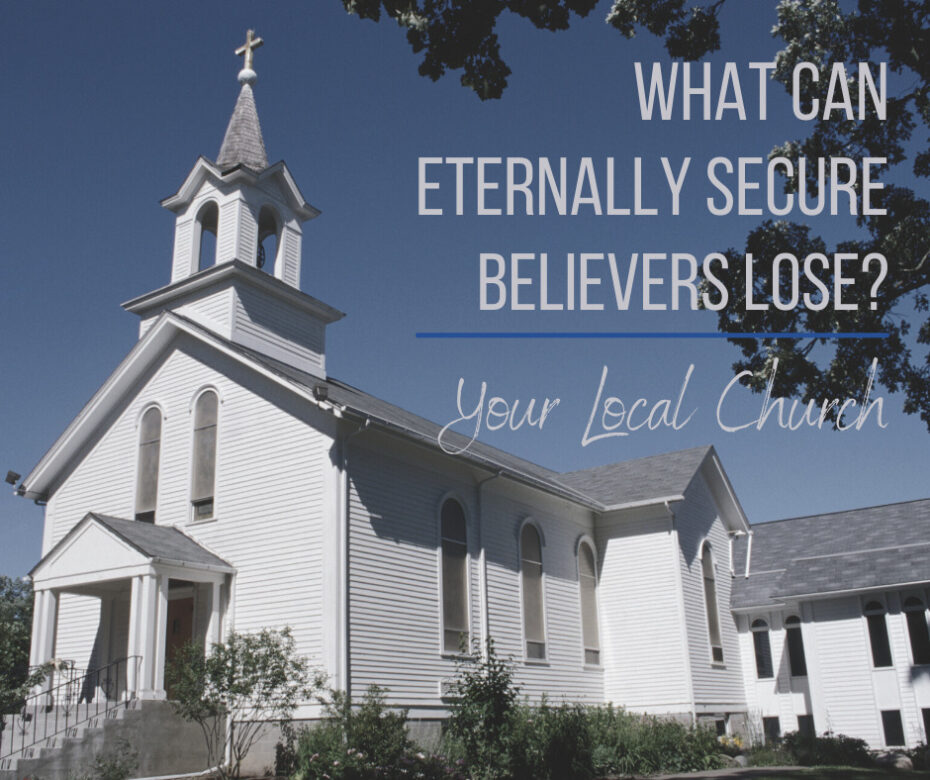Not every local church is spiritually healthy.
Some prosper, while others languish.
Some are united in loving purpose, while other churches are divided, divisive, and declining.
When someone believes in Jesus for eternal salvation, from that moment on, nothing can separate him from the love of Christ (cf. Rom 8:35). The believer is guaranteed to be with the Lord forever, whether morally awake or asleep (cf. 1 Thess 5:10). However, there is no guarantee that a local church will continue forever. Understanding that difference is part of a well-rounded belief in eternal security and a better understanding of the warning passages of Scripture.
For example, in the Book of Revelation, Jesus dictated letters to several churches. Here is what Jesus said to the Ephesians:
“To the angel of the church of Ephesus write, ‘These things says He who holds the seven stars in His right hand, who walks in the midst of the seven golden lampstands: “I know your works, your labor, your patience, and that you cannot bear those who are evil. And you have tested those who say they are apostles and are not, and have found them liars; and you have persevered and have patience, and have labored for My name’s sake and have not become weary” (Rev 2:1-3).
The Ephesians had done well in testing and uncovering false apostles. And they had not given up laboring for Jesus. However, while their outward behavior seemed good, there was something wrong with their motivations:
Nevertheless I have this against you, that you have left your first love. Remember therefore from where you have fallen; repent and do the first works, or else I will come to you quickly and remove your lampstand from its place—unless you repent (Rev 2:4-5).
The Ephesians were serving God, but their service lacked a crucial ingredient—love. They were going through the motions of Christian discipleship, but that was not enough to please the Lord. As Paul once wrote to the Corinthians,
And though I have the gift of prophecy, and understand all mysteries and all knowledge, and though I have all faith, so that I could remove mountains, but have not love, I am nothing. And though I bestow all my goods to feed the poor, and though I give my body to be burned, but have not love, it profits me nothing (1 Cor 13:2-3).
As a local church, the Ephesians had left their first love, which made their works unprofitable. So the Lord called them to “repent and do the first works.” Remember being a new believer on fire for the Lord? Remember the first months of your marriage, when you were passionately in love? That’s the kind of fire the Ephesians needed to rekindle for Jesus. But there was no guarantee that they would. Hence, Jesus warned them, “or else I will come to you quickly and remove your lampstand from its place.” What does that mean?
We know the lampstand represents the local church (Rev 1:20). So if Jesus threatened to remove the Ephesians’ lampstand, He seems to be warning the Ephesians that He was ready to close their church. As William MacDonald wrote, “the assembly would cease to exist. Its testimony would die out” (Believer’s Bible Commentary, p. 2356).
When eternally secure believers persist in sin, they cannot lose their salvation, but Jesus can shut the doors of their local church. Sin can leave a local church in ruins. You can still visit the ruins in Ephesus today.


